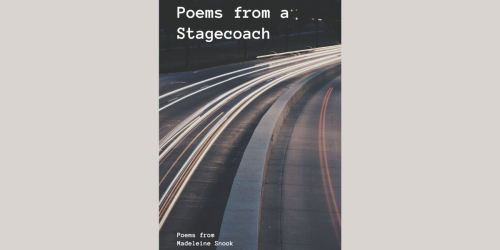
A poem a day for 21 days
Lucy alumna Madeleine Snook tells us about her journey to publication.
Lucy alumna, Emma Merritt, gives us fascinating insights on the journey from student to researcher, and useful tips on how to sleep better.
I joined Lucy in 2019 for my MPhil in Theoretical and Applied Linguistics. At the time, I wasn’t entirely sure what I wanted to do for a job; I only knew that I loved research, I liked language, and I enjoyed many of the activities that working in academia entailed. I was immediately enthralled with Lucy Cavendish for the College’s commitment to progress and inclusivity; we were not bogged down by blind fixations on “tradition,” and honored students who set out to make a positive impact on the world. This prompted me to seriously reflect on my future aspirations and how they might contribute to a better society.
After finishing my MPhil, I moved to Germany in August 2020 (yep, mid-pandemic – what a choice!) to start a PhD in linguistics. I won’t bore you with the details, but over the following 2 years, I discovered that a traditional academic career was not the right path for me. I ultimately ended up taking a mental health leave in the beginning of 2022, left the PhD, and started applying for industry jobs.
In August 2022, I came across a posting for a “sleep researcher” position at Emma – The Sleep Company. Out of sheer curiosity (and admittedly, somewhat amused by the idea of working for a company named after me), I clicked on the ad and scrolled down to the qualifications; I met 90% of them, except that I had never worked on sleep before. I applied anyway, and the rest is history.
From the get-go, my team lead had every confidence in my ability to contribute meaningfully, in spite of having no formal experience with sleep research. Knowing that I had experience with education and learning (although it was primarily focused on language), she suggested I could develop the pedagogical content for our sleep consultancy. We had just begun a partnership with Werder Bremen, a football team from the first German league, and had several more on the horizon, so we needed good content tailored to the unique needs of elite athletes. Because although everyone sleeps, not everyone sleeps well; this is particularly true for footballers, whose performance on the pitch can also be drastically affected by a bad night’s sleep.
My responsibilities include designing interactive workshops for our sleep consultees, translating materials from German into English, and researching/writing articles about different things that impact sleep and how to address them. Obviously, while designing all these materials, I had to become very well-acquainted with sleep science very quickly. And – wouldn’t you know it? – that’s exactly what my academic career prepared me for.

Some people are surprised to find out that I studied linguistics and not psychology, but when you take a step back, the similarities between language and sleep become more glaring. Sleep is a supremely complicated physiological process that we take for granted because for many of us, it comes effortlessly… just like language. Also like language, we often don’t consider how important sleep is until something goes wrong. I like helping people appreciate the complexity of this natural phenomenon.
Nowadays, I feel confident that I am doing something meaningful at work. Good sleep is an absolute game-changer that is often overlooked. Sleep education is like equipping yourself with a roadmap to stellar physical, cognitive, and emotional well-being. Whether it's solving 87% more difficult problems or reducing your likelihood of injury, a well-rested mind is the key.
Much of what I do is comb through the literature to understand how certain sleep hygiene tips work – or don’t. Sleep hygiene is essentially the fine art of creating an optimal environment for rest. While you can always blindly implement tips or “sleep hacks” you see on TikTok, I focus on helping people understand why those practices work. That way, even if your circumstances change, you can make appropriate adjustments and your entire routine doesn’t instantly fall apart. It’s about enhancing quality of life in a meaningful, sustainable way.
When I share how 20 minutes of morning sun can activate serotonin production, thus making you feel happier and alert, I can tell that it generates trust in the sleep tips I am sharing. When I explain how caffeine blocks adenosine receptors to prevent you from feeling sleepy, I know that this information will help someone cut back on their afternoon coffee consumption. I get immense fulfillment watching those “lightbulb” moments occur – when people realize that being committed to their sleep isn’t being lazy, but rather a crucial form of self-care.
My winding journey of self-discovery led me to an unexpected yet deeply rewarding career. With my background in linguistics and a passion for research, I found a niche where my skills could truly make a positive impact in people’s lives. Every day, I’m amazed at how my previous academic skills have found a new purpose. Through my story, I’ve realized that when passion meets adaptability, one can find meaning and purpose even in the most unexpected places.
Sleep tips for my Lucians:
[1] Sio, U. N., Monaghan, P., & Ormerod, T. (2013). Sleep on it, but only if it is difficult: Effects of sleep on problem solving. Memory & Cognition, 41(2), 159–166. https://doi.org/10.3758/s13421-012-0256-7